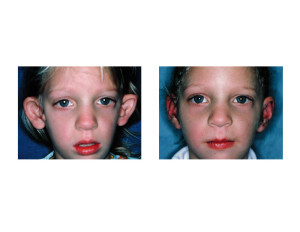Otoplasty or pinning back of the ears is the most frequently done ear reshaping procedure. It can be done throughout life in a wide range of ages. It is most commonly done in children and teenagers where protruding ears can be a very sensitive issue in their early psychosocial. While once done in children because they were being teased or for fear of being teased, the contemporary reason is that because they are being bullied.
Being made fun of or being bullied because of prominent ears is not all that rare. While the ears may sit on the side of the head and to the side of the face, they only become conspicuous when they are abnormal. While there are measurements and angles for when the ear is most aesthetically pleasing, all that matters is when the person thinks they stick out too far. Almost always when the child or teenager thinks their ears stick out too far, the parents do also.

The trickier question is a psychological one. When is it appropriate to do surgery because of an external behavior like bullying? Does the child really understand the surgery and can they cope with the process and the recovery? While these are good questions, the reality is that is one between the parents and the child. I have yet to see a child who was brought in because the parents wanted it done and the child was opposed to it. While they may not understand the actual surgery or what the recovery may be, they do understand that their ears stick out and they want it fixed.
While some may argue that having otoplasty surgery almost promotes bullying behavior, I think we all know that it is far more productive to change the physical source of the bullying than to try and change the bully. Fortunately otoplasty surgery is very safe and has few complications such as infection or ear deformity. Having performed over 100 otoplasties I have yet to see either.
Dr. Barry Eppley
Indianapolis, Indiana


